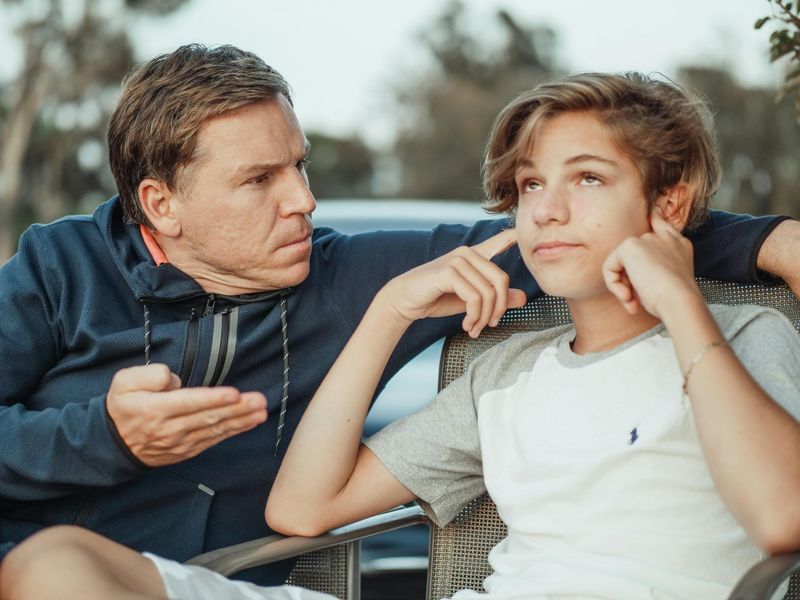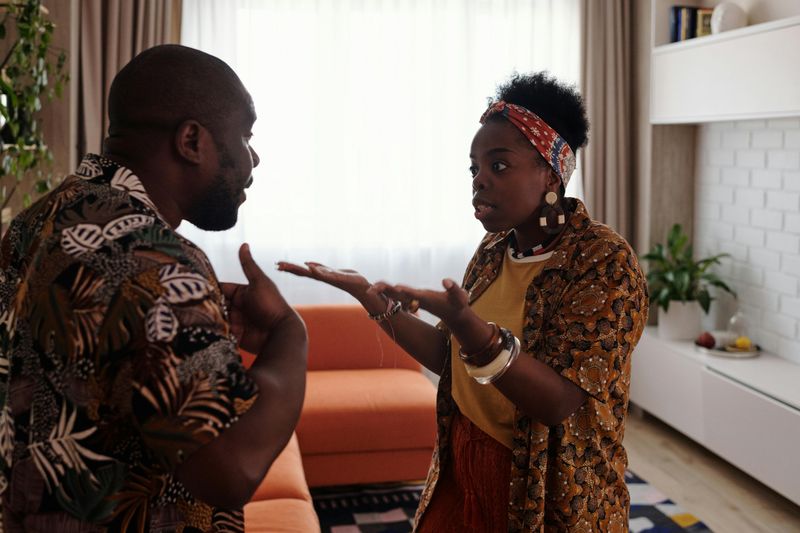Family relationships can be complicated, especially between parents and their adult children. Sometimes, these bonds break completely, leaving parents wondering what went wrong. While every situation is unique, certain patterns emerge when adult children decide to distance themselves from their parents. Understanding these hidden reasons might help families heal or at least provide some clarity about why these painful separations happen.
1. Constant Criticism

Nothing ever seems good enough. From childhood achievements to adult accomplishments, these parents find something to critique. Their words become a steady drumbeat of disapproval that follows their children into adulthood.
The psychological toll accumulates over decades. Adult children begin to realize they’re constantly bracing for the next criticism whenever they’re around their parents. The relationship becomes exhausting rather than nurturing.
Eventually, many decide that protecting their mental health matters more than maintaining a relationship that undermines their confidence. Walking away becomes an act of self-preservation rather than rebellion.
2. Emotional Neglect

Children need more than just food, shelter, and education to thrive. When parents consistently fail to provide emotional support or acknowledge feelings, kids grow up with invisible wounds. They learn their emotions don’t matter.
As adults, they often realize what was missing. The emptiness they couldn’t name as children becomes clear. Many discover through therapy or relationships that their emotional needs were valid all along.
Breaking away becomes a form of self-protection. For some, maintaining a relationship with emotionally unavailable parents means continuing to accept that their feelings don’t deserve attention – a bargain they’re no longer willing to make.
3. Unresolved Childhood Trauma

The human brain processes trauma differently as we mature. What a child once normalized – whether severe punishment, witnessing domestic violence, or living in chaos – an adult can recognize as harmful. This awakening often happens through therapy, education, or becoming parents themselves.
Parents who refuse to acknowledge past harm make reconciliation nearly impossible. The adult child faces a painful choice: pretend the trauma never happened or confront it honestly.
When parents deny, minimize, or justify traumatic events, many adult children conclude that healing requires distance. The relationship becomes a barrier to recovery rather than a source of support.
4. Lack of Respect for Boundaries

Healthy relationships require boundaries. When parents repeatedly ignore their adult child’s limits – showing up unannounced, offering unsolicited advice, or demanding constant access – they communicate that their needs matter more than their child’s autonomy.
Many parents struggle to adjust as their children grow up. They continue patterns established in childhood, refusing to recognize their offspring as independent adults with their own lives and decisions.
After years of having boundaries trampled, many adult children resort to creating physical distance when verbal boundaries aren’t respected. The separation becomes the only boundary that parents can’t simply ignore or push past.
5. Manipulation or Guilt-Tripping

“After everything I’ve done for you…” These words signal the weaponization of parental sacrifice. Parents who repeatedly use guilt to control their adult children create a relationship based on obligation rather than love.
Emotional blackmail takes many forms. Threats of disappointment, withdrawal of affection, or dramatic health concerns that appear during important life events are common tactics. The adult child learns that their independence comes with an emotional price tag.
Many eventually realize this dynamic will never change. Cutting contact becomes the only way to escape the cycle of manipulation and live authentically without constant emotional pressure.
6. Toxic Favoritism

Family roles can damage children for life. The “golden child” might receive praise and opportunities while the “scapegoat” shoulders blame for family problems. These patterns rarely change without intervention.
Adult children who were consistently treated as less valuable than their siblings carry deep wounds. The inequality becomes more obvious with age and perspective. Parents often deny this dynamic entirely, making healing impossible.
For many, the pain of continued unequal treatment becomes unbearable. Holidays and family gatherings just reinforce the hierarchy. Stepping away from the family system becomes necessary for building self-worth outside the assigned role.
7. Refusal to Take Accountability

Everyone makes mistakes as parents. The difference lies in how those mistakes are handled. Parents who refuse to acknowledge harm, apologize sincerely, or change their behavior make reconciliation nearly impossible.
Many adult children attempt conversations about painful past experiences only to face denial, defensiveness, or being told they’re “too sensitive.” This secondary rejection often hurts more than the original wounds.
Without accountability, the relationship remains stuck in harmful patterns. Many adult children eventually conclude that parents who can’t acknowledge past mistakes can’t be trusted not to cause similar harm in the future.
8. Emotional or Verbal Abuse

Words leave invisible scars. Parents who consistently belittle, mock, or shame their children create lasting damage to their sense of self-worth. Name-calling, harsh criticism, and humiliation are forms of abuse, even without physical violence.
Many adult children spent years believing they deserved this treatment. Through therapy, healthy relationships, or personal growth, they eventually recognize the abuse for what it was. This awakening is both liberating and painful.
When parents continue these behaviors into adulthood, many grown children face a difficult truth: the person who should love them most continues to harm them deliberately. Distance becomes necessary for emotional survival.
9. Parents Treating Adult Kids Like Children

The shift from parenting a child to respecting an adult is challenging for many parents. Some never make this transition, continuing to offer unsolicited advice, make decisions, or express disapproval about everything from careers to relationships.
This infantilization communicates a fundamental lack of respect. Adult children find themselves constantly defending their competence and independence. Every interaction becomes a battle for basic dignity and recognition.
Many discover that no amount of success or maturity changes how their parents see them. The only way to be treated as an adult is to create distance from those who refuse to acknowledge their growth.
10. Involvement in or Enabling of Toxic Family Dynamics

Sometimes the primary problem isn’t with both parents directly. One parent might enable an abusive spouse, addiction, or harmful family patterns through silence or denial. This passive participation causes its own type of damage.
The parent who stood by while harm occurred often can’t understand why they’re included in the estrangement. “I never hurt you,” they might say, missing how their failure to protect created its own wound.
Adult children eventually recognize that parents have responsibilities beyond direct care. Those who consistently chose peace within their marriage over their child’s wellbeing failed in a fundamental parental duty to protect.
11. Conditional Love

Love should be a safe harbor, not a performance evaluation. Children raised with conditional love learn their worth depends on achievements, behavior, or meeting parental expectations. This creates profound insecurity.
As adults, many realize the exhaustion of constantly “earning” their parents’ approval. They notice how affection appears and disappears based on compliance with parental wishes. The relationship feels transactional rather than secure.
The revelation that love was always conditional often comes through contrast – experiencing unconditional acceptance from others. Many choose to surround themselves with people who love them as they are, not for what they accomplish or how they behave.
12. Cultural or Generational Clashes

Families sometimes fracture along the fault lines of changing values. Parents with rigid expectations about religion, sexuality, gender roles, or cultural traditions may reject children who develop different beliefs or identities.
Adult children face impossible choices when parents demand conformity to values that conflict with their authentic selves. The ultimatum, spoken or unspoken, becomes clear: be someone you’re not or lose your family’s acceptance.
Many try compromise for years before realizing some differences cannot be bridged. When parents consistently prioritize cultural expectations over their child’s wellbeing and happiness, many adult children eventually choose authenticity over family approval.
13. They Feel More Peace Without the Relationship

Sometimes the most telling sign comes after separation occurs. Many adult children describe an overwhelming sense of relief once contact ends – like putting down a heavy burden they’d carried so long they forgot how it felt to stand straight.
This peace speaks volumes. Relationships should generally add more to our lives than they take away. When anxiety disappears, sleep improves, and confidence returns after cutting contact, the body confirms what the mind suspected.
Many try repeatedly to make things work before accepting this difficult truth. The relationship had become so consistently harmful that its absence creates more healing than its presence ever could.

Comments
Loading…